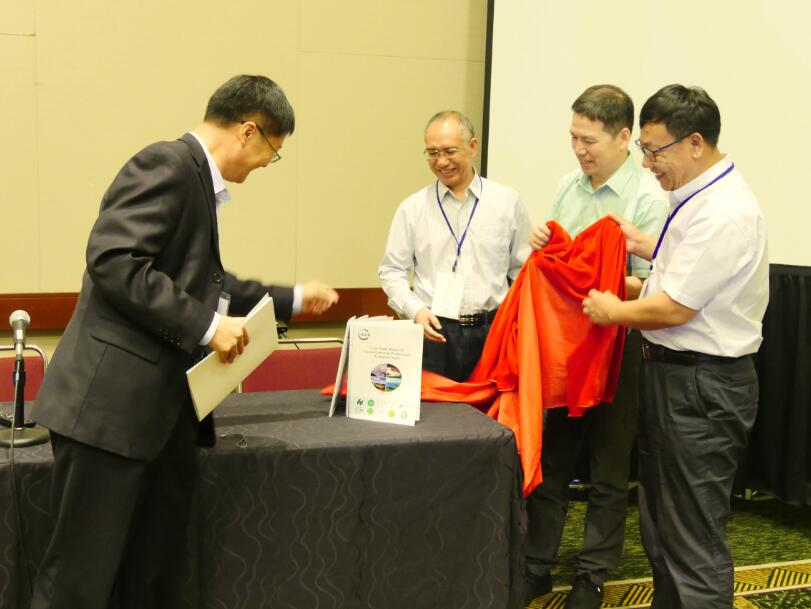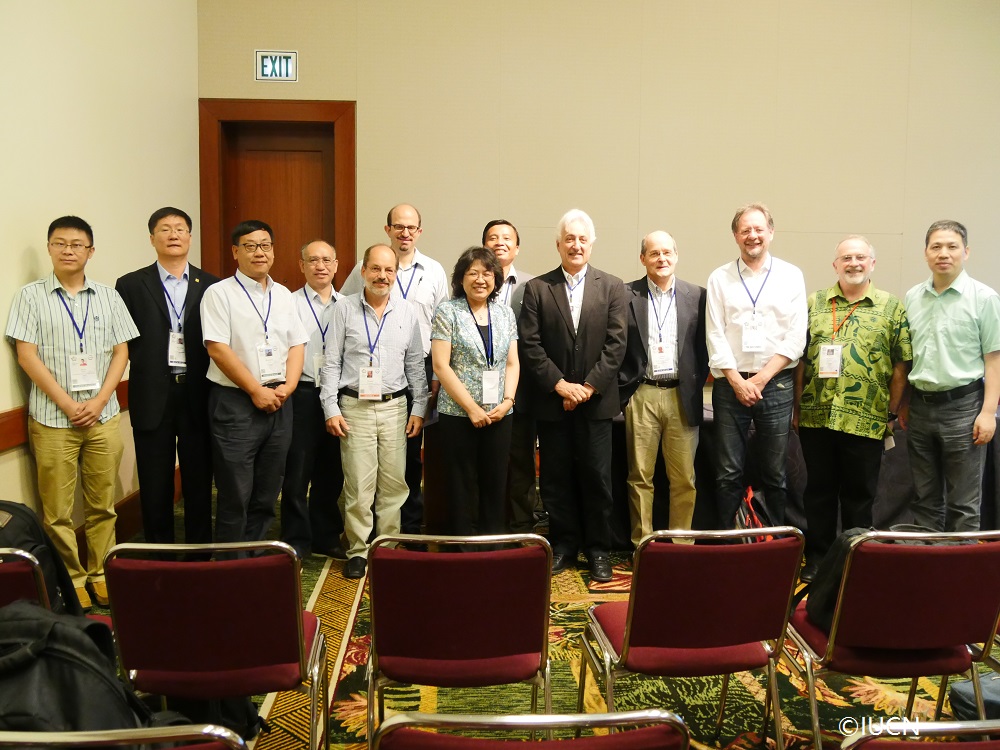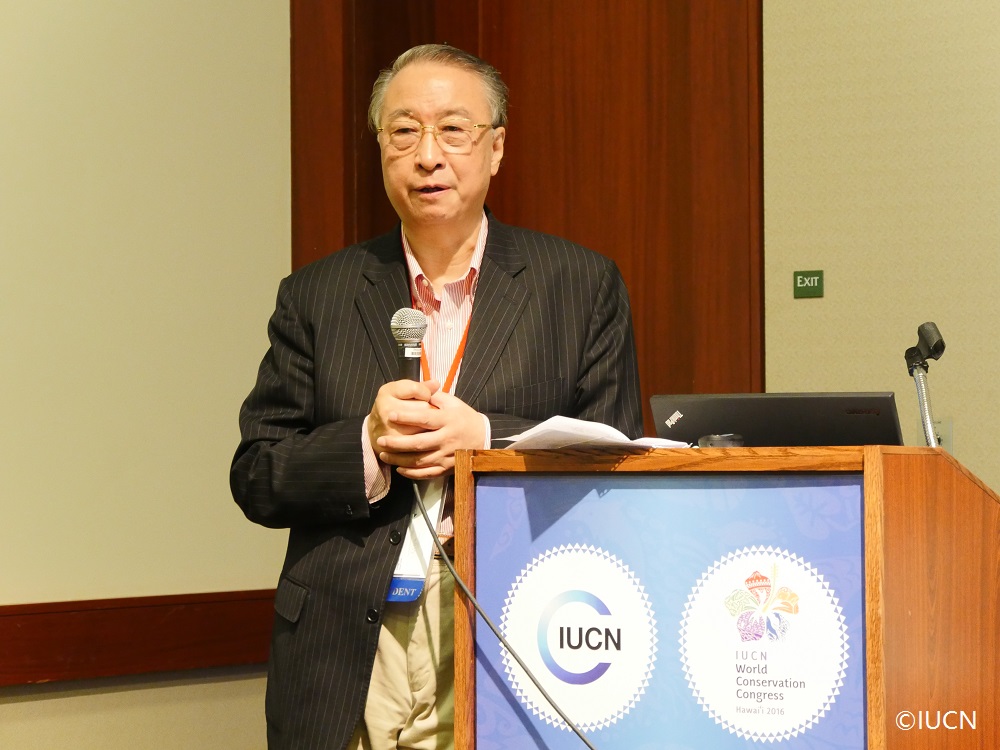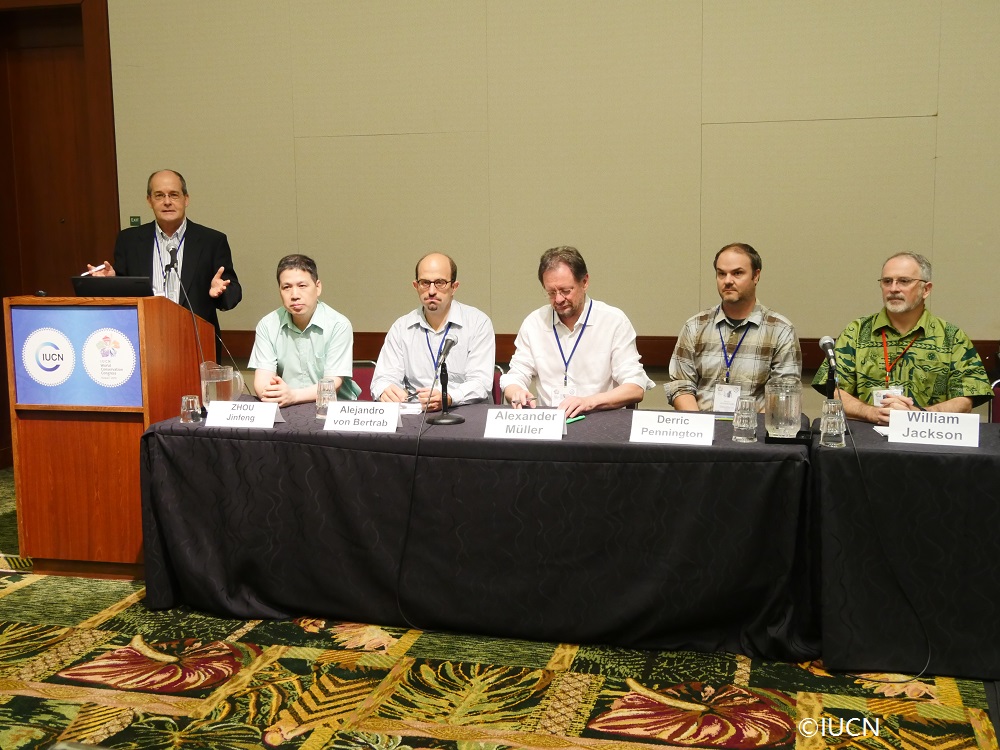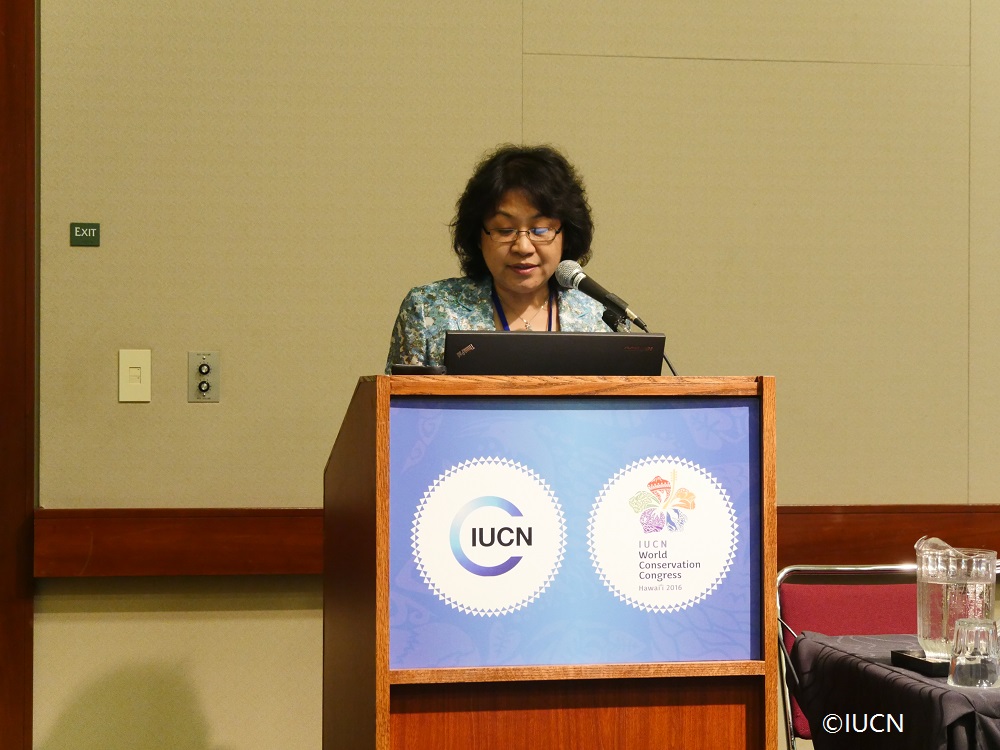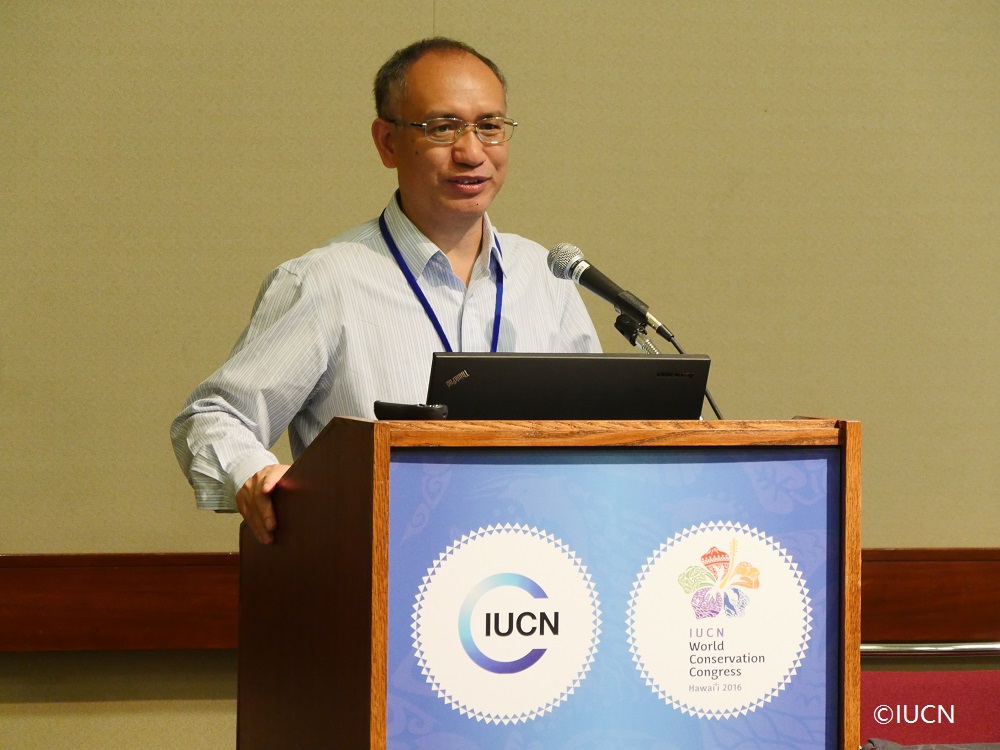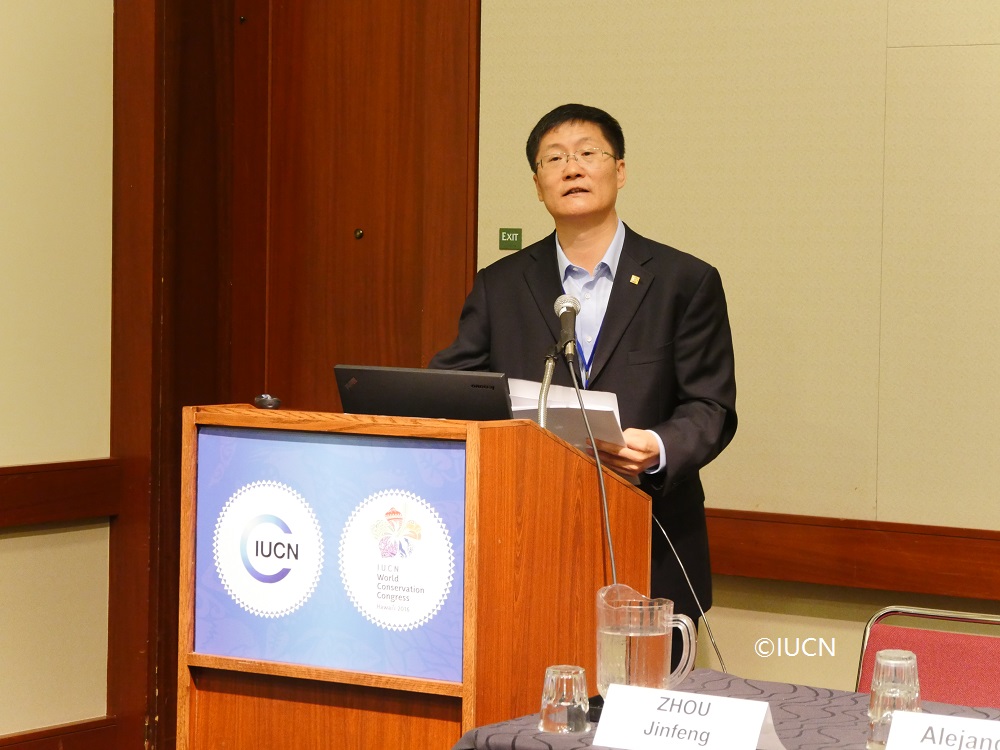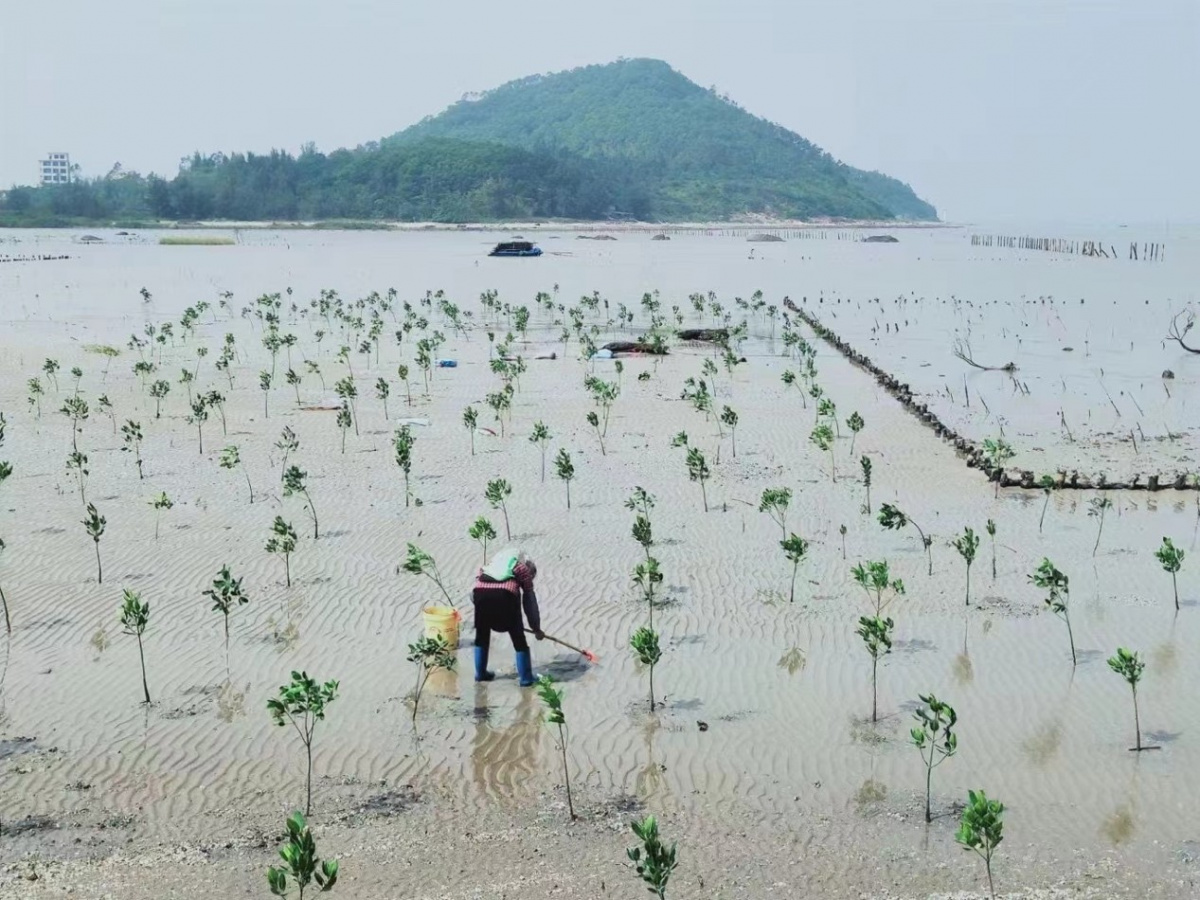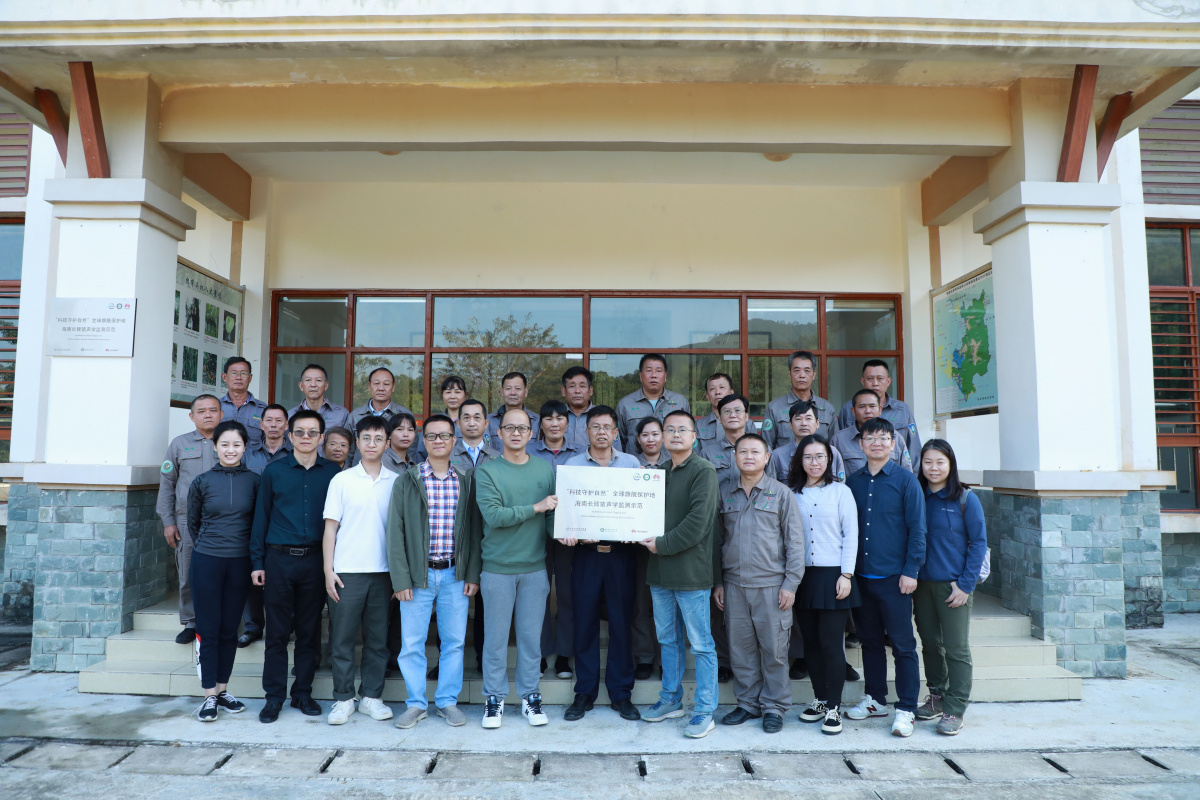IUCN China organises Gross Ecosystem Product workshop at IUCN World Conservation Congress
The “GEP-Valuing and Mainstreaming Ecosystem Services Into National Decision-Making and Accounting System” workshop took place during the IUCN World Conservation Congress (WCC), September 5, Honolulu, Hawai'i. The workshop was jointly convened by IUCN, China (IUCN China), Research Center for Eco-environmental Sciences, Chinese Academy of Sciences (RCEES-CAS), China Biodiversity Conservation and Green Development Foundation (CBCGDF), and State Forestry Administration (SFA). Experts from multiple nations and organisations shared their insights and experiences. Edmund Barrow, Global Director of IUCN Ecosystem Management Programme, chaired the workshop.
The Case Study Report of Gross Ecosystem Product and Ecological Assets in Inner Mongolia, Tonghua City in Jilin, and Xishui County in Guizhou, suggests that nature in these municipalities produce ecosystem goods and services annually amounting to 212 billion CNY, almost two times of their annual GDP.
Ecosystem goods and services are the benefits that humans obtain from nature, such as food, water, energy, carbon sequestration, soil and water conservation, disaster prevention, etc., which articulate the relationship between nature and human well-being. GEP is the total annual value of ecosystem goods and services supplied to humans in a region, which can be administrative unit (e.g. country, province, city or county) or physical geography unit (e.g. river basin).
Dr. Zhu Chuqnuan, the leader of GEP technical accounting group, Country Representative of IUCN China, opened the workshop. "The tendency of only looking out for money is severely destroying mother nature, and set-up a significant barrier to achieving sustainable development. The concept of GEP was put forward to measure the ecosystems as an equivalent indicator of GDP and other national measures," he said.
Prof. Robert Costanza, Professor of the Crawford School of Public Policy, Australian National University gave his speech on context and global progress of ecosystem services accounting. He noted that: "The ecosystem services concept allow us to build a more comprehensive and balanced picture of the assets that support human well-being and human’s interdependence with the well-being of all life on the planet."
Dr. Dai Guangcui, Director of China National Forestry Economics and Development Research Center, SFA, introduced Nature Resource Accounting in China, with a particular focus on accounting of forest resources. She noted that: "At the end of 2013, the area of forest in China was 310 million hectares, valued at 7.6 trillion yuan, the total value of forest ecosystem regulating services in 2013 was estimated at around 12.6 trillion yuan."
"The purposes of GEP accounting is to assess the ecosystem status, measure the community sustainability, evaluate the contribution of ecosystems to human welfare and socio-economic development, evaluate the effects of conservation efforts, and reveal the ecological linkages among regions in terms of ecological dependency and ecological supporting," said Prof. Ouyang Zhiyun, the leader of GEP technical accounting group, Secretary and Deputy Director of RCEES-CAS.
Case Study Report of Gross Ecosystem Product and Ecological Assets was released at the workshop. Dr. Zhu sent his appreciation to all people who provided their efforts to the report, and hoped that "This Case Study Report will not only elevate the GEP project, but will also contribute to the global ecosystem accounting progress." Dr. Zhou Jinfeng, Secretary General of CBCGDF, Prof. Ouyang, and Mr. Liu Baodang, Chair of the Luliworld also presented at the release event.
The panel consisted a list of global experts on ecosystem services: Dr. Zhou; Dr. Alexander Müller, the Study Leader of TEEB for Agriculture & Food; Dr. Derric Pennington, Lead Conservation Scientist, Natural Capital and Valuing Nature and WWF; Alejandro von Bertrab, Advisor of GIZ global project; and William Jackson, Prime Deputy Director General of IUCN, Director at Intellgama Pty Ltd.
Panelists provided their opinions on GEP and other ecosystem accounting indicators regarding their potential and challenges. Dr. Zhou noted that "It is really difficult to promote GEP in China today, because local government mainly pays attention to GDP, and we worked very hard to get their support." Dr. Müller addressed the issue, saying "GDP is incomplete, it is undermining and misleading the future of people on the planet, and we are offering a possible solution, which is adding natural capital and social capital. GEP is a signal showing that one of the greatest economies in the world is taking this issue seriously. And we have to be very careful, what we are doing is we are challenging the most powerful figure in the world, GDP, that is a big issue."
Dr. Bertrab pointed out that "GEP is an excellent piece of advocacy, re-demonstrating there is a value in nature, and providing comparable terms with other measures. Particularly, the regulating services get much higher value than culture services, and provisioning services is a crucial message, as whose value is usually difficult to understand. However, we must be very careful when we talk about ecosystem services accounting. We should avoid falling into the same traps as GDP."
"I think this is a critical session, with a critical topic," said Mr. Zhang Xinsheng, the President of IUCN, in his closing remarks. "Four or five years ago, when we talked about ecosystem services, not many people knew what it was, but now many global reports are using it. I think GEP is an icon, is a brand. It is easy to understand, and easy to populate by all the decision makers, including government, business, media, civil society, as well as academia. Our nature is at the tipping point, but I believe through GEP, we can change this tipping point into turning point."
As a new ecological accounting system that measures the ecology status, GEP is used to evaluate the ecosystem conditions and ecological benefits, to assess the effectiveness of ecological protection, as well as to appraise the ecological connection between different regions. GEP can also be applied as a scientific basis for the assessment of eco-civilisation development and improvement of ecological compensation policy.
IUCN China will continue GEP assessments in Xing’a League, Tonghua City, Xishui County and Ordos City, and will also develop more GEP pilots in other regions and countries jointly with key partners. Moreover, IUCN will explore the practicability and implemental plan of developing and implementing the GEP statistics and accounting system, and propose the idea of adopting GEP as one of the development indices for China and other countries.
